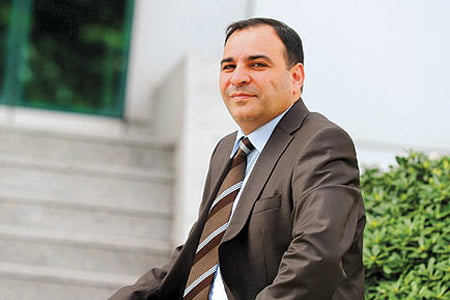The role of civil society in Turkey’s democratization

Date posted: May 30, 2012
BÜLENT KENEŞ May 22, 2012
Neither the state nor political parties can act as guarantees for democratization and democracy. With the fact that the main impetus behind and guarantee for our democratization is our ever-growing civil society, we need to consider whether we are attaching due importance to “Civil Society Organizations”.
In the speech I delivered at a conference titled “Democracy and Social Conflict in Korea and Turkey” held by Seoul University last week, I noted that although it appears the entity that has led the recent historic democratic transformation in Turkey is the Justice and Development Party (AKP) — i.e., a political party that is part of the political superstructure — the real driving force behind this change is the ever-growing sociopolitical infrastructure. I further underlined the undeniable role the Hizmet movement, inspired by the ideas of the esteemed Fethullah Gülen, as a rising part of Turkey’s sociopolitical infrastructure, is playing in Turkey’s democratic transformation. Now, I will try to elaborate on this argument.
First of all, it must be accepted that the last decade of reforms, implemented with the AKP at the helm of the country, does not represent the first or only period of democratization. It is true, of course, that the AKP has launched revolutionary reforms that are unparalleled, particularly with respect to previous reforms in the history of the Turkish Republic. Yet, it should not be forgotten that if the foundations of the sociopolitical and economic infrastructure in question had not been laid with perseverance and determination starting in the 1980s, the AKP, as a component of the political superstructure, couldn’t possibly have implemented those tremendous reforms. In this context, I think we should be fair enough to acknowledge the part played in the last decade of transformation by what the late President Turgut Özal did in the 1980s.
Özal had come to power hot on the heels of the Sept. 12, 1980 coup — i.e., at a time when the military still had clout and tutelage over the political system — and, against all odds, he patiently toiled to establish a sociopolitical and economic infrastructure on which the country’s recent strides in democratization are based. Given the fact that some of the politicians Özal included in his party to make sure every political tendency in the country was represented were later found to be affiliated with Ergenekon, a clandestine organization nested within the state trying to overthrow or manipulate the democratically elected government, it has now become evident how lonely Özal was in his efforts to create this infrastructure.
Despite his solitude, Özal reinforced and strengthened the police department in terms of education, equipment and authorization and positioned it as an element of balance in the face of the Turkish military, whose past is rife with coups and interventions. Likewise, he invented various incentives to boost Anatolian capitalists against İstanbul’s big corporations that tended to lend support to coups in order to maintain their exploitation of state resources. Making the Turkish currency convertible and opening the Turkish markets to competition, he paved the way for the establishment of industrial and service sectors that can compete with international corporations. Moreover, he always encouraged religious/conservative people to get organized under various civil society organizations (CSOs), which today collectively form the main impetus behind democratization, demilitarization and greater integration with the global system.
One of those that best took advantage of the suitable climate created by Özal for the flourishing of civil society was undoubtedly the Gülen-inspired Hizmet movement. Without understanding the part played by the Hizmet movement and similar socially dynamic civil society movements, one cannot make sense of Turkey’s recent success in its struggle against deep state networks or of the colossal progress it has made in democratization and economic growth. If this sociopolitical infrastructure consisting of CSOs, educational institutions, media outlets and Anatolian business circles that eased the task of the AKP in the country’s economic transformation had not existed, I think all of those achievements would have been mere fancies. Or, had this sociopolitical infrastructure existed in the 1980s, Özal might have implemented his post-2002 reforms more comprehensively and successfully. Still, we should not regret this missed opportunity. In the final analysis, the process Özal patiently initiated with foresight has today come to bear fruit in the hands of the AKP.
It is clear there is a parallel between the weakening of the military heritage through the empowerment of civil society and the strengthening of Turkish democracy. A sociopolitical climate in which the distribution of income is fair, the middle class grows larger and CSOs are more active is the greatest guarantee for democratization, liberalization and democratic achievements. In this respect, it is really relieving to know that the political fate of the country has not been left to a handful of political elites. And our confidence in the democratization process is further emboldened with the fact that the number of Turkish CSOs is on the rise.
Thus, the number of CSOs rose to 60,931 in 2000, a 235 percent increase from 1990, and to 90,930 in 2011, a 47 percent increase from 2000. Membership in CSOs reached 8 million in 2011. These figures are certainly important, but not nearly sufficient in comparison with countries similar to Turkey. Indeed, the number of CSOs in Germany is 2.1 million and in France is 1.4 million. There are 7 million in the US, a country where civil society is at its peak.
To conclude, neither the state nor political parties can act as guarantees for democratization and democracy. With the fact that the main impetus behind and guarantee for our democratization is our ever-growing civil society, we need to consider whether we are attaching due importance to CSOs.
Source: Today’s Zaman http://www.todayszaman.com/columnistDetail_getNewsById.action?newsId=281126
Tags: Democracy | Hizmet (Gulen) movement | Hizmet and politics |
























